- Home
- Rick Mofina
They Disappeared Page 20
They Disappeared Read online
Page 20
She couldn’t believe any of this, couldn’t believe all that had happened, that she was now pulling her son so tight to her that he nearly cried out.
Am I making a mistake to send him off like this? What if something happens? What if I never see him again? I’ve already lost Lee Ann. I could not bear to lose him. But it’s his only chance to get free, to be safe.
Cole stood; she kissed him frantically, squeezed his hands, tight.
So tight.
“I love you so much, honey!”
“I love you, too, Mom!”
Cole hugged her and she heard him gasp for air.
Then he moved soundlessly, crouching and gathering his chain, pulling it into the bathroom and carefully closing the door. If the guard woke it would appear Cole was using the toilet.
Their guards didn’t pay much attention to Sarah and Cole when they used the toilet because they were chained.
She watched as his tiny figure vanished in a blurring stream of thick, salty tears.
* * *
Inside, Cole flushed, using the loud splashing to mask the sound of him removing the air-shaft cover. He lowered himself, then entered the hole, glad there was enough ambient light for him to quietly squirm and crawl along the tin shaft until he exited through an uncovered end that opened into another large room that flowed into the rest of the factory.
Cole stood, then hurried from the room and across the edge of the factory floor.
He was nearly blinded by the dark.
Fear tightened his chest. He had to take baby steps.
I gotta get out of here.
As his eyes adjusted, Cole distinguished a dark minefield of shattered glass, pieces of twisted metal, broken boards with exposed nails and drums filled with unknown liquids. The scratching sounds and squeaks of small living things scurrying near him made his skin crawl. This place stinks. Holes in the floor opened to the lower level, like portals to an abyss. If I fall in one of those, I’m dead. And everywhere, bird droppings and the flap and coo of pigeons.
He tried to get a sense of the layout, a sense of direction.
I don’t know where to go. How do I get out?
The factory windows were at least ten feet from the floor, so trying a window wouldn’t work. Cole decided to stay close to a wall and follow it, hoping he would come to a door. Taking a moment to get his bearings, straining to see in the darkness, he slowly began navigating his way around stacks of pallets, crates, abandoned lathes and heavy motors smelling of oil, rubber and hydraulic fluid.
As he got closer to the wall, he was certain he’d glimpsed a metal railing for stairs. It looked like a landing and a door. Cole inched his way toward the stairway. He grew more certain it was a door out. His hope rising, he tried to hurry when the air exploded with the metal rattle of a steel bucket crashing a great distance.
He’d stumbled and kicked it.
Cole froze.
They must’ve heard the noise.
Cole headed for the landing and the door.
Please be the door out of here! He seized the handle and pulled but nothing happened. The door was sealed. Cole’s heart pounded with ferocity.
Should I go back and help Mom? Should I keep running?
Before he could answer he was moving fast along the wall until he spotted a set of metal stairs leading to a darker, lower level. There was a handrail; he seized it and as quickly as he could descended the stairs.
He nearly gagged at the smells of feces and sewer.
Holes in the floor above allowed for dim, diffused light.
Cole recognized the shapes of drums, a network of pipes and the outlines of massive generators.
Help me, please help me find a door, a window, something!
His pulse pounding, Cole spotted the shape of a door on the other side of the section. Hurrying toward it, he felt the odd sensation that he was flying, no, falling, into blackness…falling, falling—his stomach lifted to his mouth…oh, God, Mommy, Daddy—falling, then he was wet because… Water—he was completely submerged and sinking. His ears rang and he felt his body lifting. Breaking the surface, gasping; swinging his arms wildly, Cole seized a steel beam and felt a stone wall.
Brushing water from his eyes, Cole lifted his head to the gloom above, realizing he had fallen into a deep pit.
CHAPTER 45
New Jersey
Aleena woke stiff, sore and a little disoriented.
The two sleeping pills she’d taken earlier, to adjust to New York time, had put her out. Her body was bouncing gently in her window seat as her Boeing 747 encountered turbulence a few hundred miles out of Newark.
She yawned, snuggled under her blanket and gazed at the clouds.
As wisps of memory assembled in her brain, a chime sounded.
The captain announced that they would soon begin their descent into Liberty International Airport. He estimated an early arrival at the gate at 10:15 a.m. local time.
“As for the local weather, it’s a clear morning and seventy-four degrees.”
Aleena had to pee.
She contorted her way around the two other passengers in her row, inhaling the locker-room reek of the cabin air. The flight was full. The smell of the tiny lavatory was overpowering with industrial-strength freshener. While washing her face, Aleena returned to her dilemma.
I don’t know if I can do this.
She met her fearful reflection in the mirror.
But I have no choice. If I fail to make the delivery, Joost will harm my family. I’ve been around the world, I’ve seen the people he knows.
She brushed her teeth, changed into fresh clothes, returned to her seat and fished out the music box again, wondering and worrying about its significance. What makes this so important? As she examined it, the woman in the seat beside her smiled.
“It’s very pretty,” she said.
Aleena nodded and closed the box.
She put it away and glanced down the cabin, forcing herself to think of something, anything, else. But her stomach slowly knotted when she spotted the raised portion of a broadsheet newspaper. As a former reporter, she identified it as the Telegraph, a leading British paper.
Murder-Kidnap Case Stirs Terror Fears at UN Meeting in New York.
What’s that all about? She’d missed that story in Amsterdam.
Could the music box be connected to it? No, not if the other case has already happened. Maybe what I’m delivering is actually just a music box, some valuable item someone’s paid for. What if it is related to the terror story? I should throw the box away.
Aleena bit her bottom lip.
Stop this. You’re driving yourself crazy.
She grappled with her problem until the landing gear lowered with a hydraulic groan into the air rush and locked with a thump.
The ground blurred and the runway gently met the jumbo in a smooth landing. After it came to a full stop, Aleena gathered her bags and waited her turn to file off of the plane.
She used the mundane process to mentally repeat her memorized emergency contact number, starting with the area code 718. If anything went wrong with the delivery she was to call the number for instructions.
As the plane cleared, she fell in with other passengers making their way through the terminal toward U.S. immigration where she joined the enormous line for non–U.S. citizens.
There would be a long wait.
Six other international flights had arrived, four of them 747s, one from Singapore, a flight from Tokyo and four from Europe.
Joost had once told her that whenever possible he strategically booked flights for her that were scheduled to land during an airport’s busiest hours. That’s when agents were usually overwhelmed. It increased the chance of less scrutiny entering a country.
She could not know that today, at Newark, scrutiny was intensified.
The delay arose because the Office of Enforcement at U.S. Customs and Border Protection headquarters in Washington, D.C., was acting on intelligence from the FBI through Homeland Security to tighten inspections, especially at all entry points for New York City. Alert status was already high because of the UN gathering. The abductions, the murders and the discovery of evidence tied to a potential terror plot had pushed security even higher.
Lines moved with glacial speed.
Finally, the U.S. immigration inspector waved Aleena to his desk and received her passport. Coming from the Netherlands she did not require a visitor’s visa or any other documentation. She was photographed and fingerprinted on a scanner, then the inspector studied her passport and then her face, ensuring it matched her photograph.
“Where were you born?”
“Amsterdam.”
“And what do you do there?”
“I work for a travel magazine.”
“As what?”
“A travel writer.”
“I see you’ve been to many places, the last one you visited was Yemen.”
Aleena had forgotten how that might not sit well with U.S. authorities for a foreigner about to enter America.
“What did you write about in Yemen?”
“The city of Shibam.”
“Shibam?”
“It’s about two thousand years old and has skyscrapers made of mud. And I went to Socotra Island to see the strange vegetation and snow-white sand dunes.”
“What’s the purpose of your visit to the U.S.?”
“I’m writing features on New York City.”
“What sort of features?”
“About Times Square, Ground Zero.”
The inspector’s eyebrow arched and he looked again through Aleena’s passport. It had been a long time since he’d seen one where an individual had been to so many countries. Yemen. Yemen was a red flag.
“All right, we’re going to need to have a look in your bags.” He raised his arm to summon another agent. “Go with this guy coming over.”
The U.S. customs officer was grim-faced.
“May I see your passport and ticket, please?” he said, then inspected Aleena’s papers. “You have no checked bags to claim?”
“No.” She pushed her hair back.
Aleena swallowed hard.
She’d traveled the world. She’d encountered security hassles in Libya, Syria, Colombia, Mexico, Hong Kong and Kuwait City, but her instincts were screaming that today, of all days, something was wrong.
This is bad.
At that moment, she heard the yelp of a dog as the officer led her to an inspection zone with body scanners, X-ray machines, sniffer dogs. At an array of tables people were being searched, wanded, patted down, their belongings emptied from their luggage, sifted, scrutinized, swabbed.
“Put your bags on the table, please,” the officer said.
An inspector, an older man with blue latex gloves, sent Aleena’s bags through an X-ray machine while she endured a full-body scan. Then a female inspector patted her down and swabbed her hands for any trace of explosives.
With her belongings exposed the older officer examined every item—Aleena’s toiletries, her underwear. They opened her laptop, turned it on, swabbed it. Then the man held up the music box.
“Is this yours?”
“A gift for my girlfriend in New York. I plan to wrap it here.”
He opened it and it played. He closed it, then sent it through the X-ray machine again.
All the saliva in Aleena’s mouth evaporated.
God, what’s in that music box? What did Joost give me?
When it came through, he opened it and carefully began to take it apart, examining the cylinder and gear mechanism. The officer called into his shoulder microphone.
“Art, bring your partner over here, would ya?”
A dog yelped, a chain jingled and an officer with a German shepherd on a leash arrived, sniffing everything belonging to Aleena. The dog’s wet snout sniffed and snorted the music box’s mechanism.
Aleena’s stomach twisted at the fear her life could stop right here. If they found something, she’d be arrested, charged and end up in a U.S. prison.
Please. She blinked. Please.
“It’s good,” the dog handler said.
The inspector then swabbed it and submitted the sample to the machine for analysis.
“Okay, thank you.” The older officer returned all Aleena’s papers. “Get your things together, fill out an entry card and have a nice day.”
Aleena’s pulse was pounding as she repacked, shoving the music box deep into her bag as if it were an unwanted companion who’d misbehaved.
Exiting the airport she got a cab.
“The Grand Hyatt in Manhattan, near Grand Central Terminal,” she told the driver.
As they pulled away from the curb her heart was racing. It would be a long time before relief began to seep into Aleena’s veins. The first thing she would do at her hotel was take a long hot shower. Again she tested her memory on the emergency contact number: 718-555… As they glided along the freeway the flames of doubt began burning again. As the span of the magnificent George Washington Bridge rose in the distance Aleena struggled. She gazed across the Hudson at Manhattan’s glorious skyline.
She looked in her lap.
She was clutching the music box.
She pushed the button to lower her window and New Jersey’s industrial air rushed in tugging at her hair as she turned the music box over and over.
Maybe I should just throw it out the window?
Will I have blood on my hands?
CHAPTER 46
Manhattan, New York City
Jeff was rising, surfacing from a sleep too deep for dreams.
Despairing cries clanged in the darkest reaches of his mind.
Lee Ann, Sarah, Cole.
Images whirled.
Grotesque ghost masks, Sarah’s face, Cole’s smile. Shoes. Take-out cups. News cameras. Motorcades. Toy airplanes. Planes hitting the towers. Lee Ann’s grave.
We fear the things we can’t control and grapple with the things we can.
Jeff woke, unable to move. His body ached. The aftereffects of stress had fused his bones to the bed.
Where am I? What’s happening?
As he struggled through his dazed numbness, his synapses fired and hurtled him with crystalline force back to his living nightmare.
He hefted himself and sat up at the side of his bed.
He was alone.
He inventoried the room. Morning after an intense battle: the two desks, chairs, were askew. Cordelli, Ortiz, Cassidy and Chu had taken away the crumpled notepaper, cables and other equipment. All that was left in the aftermath were empty soda cans, coffee cups, napkins, wrappers and the food trolley. Jeff was haunted by mental pictures of Cole, Sarah, and felt overcome with waves of helplessness.
Don’t wallow, do something, Griffin, haul ass!
He shaved and showered, making the water as cold as he could stand it, letting icy needles prick him until he was alert. He dressed, gulped cold coffee, then picked the most decent-looking food: a wrapped ham-and-cheese sandwich, an apple and a bottle of water.
That was breakfast.
He switched on the TV, keeping the volume low. It didn’t take long before he found a local New York news channel.
“…yes, and sources say that fears of a terrorist attack during the UN General Assembly have been heightened in the wake of two murders connected with the abductions of…”
Sarah and Cole stared back at him from the screen. Then Jeff saw himself at the podium, making his plea at the pre
ss conference. The faces of Donald Dalfini and Omarr Aimes surfaced before the news story cut to the UN building, motorcades, footage of world leaders coming and going in New York.
I’m wasting time. Come on. Do something.
There was a soft knock on the door to the adjoining room.
“Let us know when you’re ready, Mr. Griffin.”
Ready for what? To twiddle my thumbs while you babysit?
The FBI had placed two agents in the adjoining room “to assist you and for your protection, sir.”
Right.
Truth was, the investigators—Brewer, Cordelli, the FBI, all of them—did not want him left alone. They expected him to sit here in this room and do nothing.
“As hard as it is for you,” Cordelli had warned him last night, “you have to sit tight and let everyone do their job.”
To hell with that.
“I need a few minutes, please,” Jeff called back.
He glanced at his nightstand, which held his personal laptop and his hard copy of all the images Chu and Cassidy had worked on.
But there was more.
He started his laptop. Last night, Cassidy had finally come up with a list of restaurants licensed by the city that began with L and prioritized those remotely resembling Lasa or Laksa.
The stylized image had stemmed from the logos Jeff had recalled from the discarded wrappers and cups in the van. Precincts would use the list for the canvass. But this was not the only lead investigators were chasing. Late last night, Cordelli and Ortiz had reiterated how upward of twenty agencies were going all out on every aspect of the case he could imagine.
That was good, but Jeff was not going to sit in this room and watch soap operas and game shows while time ran out on his family, not after he’d been so close—so goddamned heartbreakingly close—to rescuing Sarah.
I slept, did absolutely nothing, while Lee Ann died alone in the next room. Nothing is going to stop me from finding my family.
More knocking at the door.
“Not dressed yet!”
During last night’s session, Jeff had glanced over Cassidy’s shoulder at his laptop screen and made mental notes on the list of restaurants, cafés and coffee shops Cassidy was preparing.

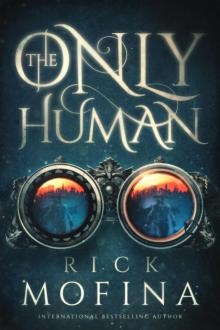 The Only Human
The Only Human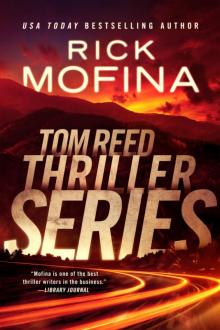 Tom Reed Thriller Series
Tom Reed Thriller Series![[Tom Reed and Walt Sydowski 04.0] No Way Back Read online](http://i1.bookreadfree.com/05/tom_reed_and_walt_sydowski_04_0_no_way_back_preview.jpg) [Tom Reed and Walt Sydowski 04.0] No Way Back
[Tom Reed and Walt Sydowski 04.0] No Way Back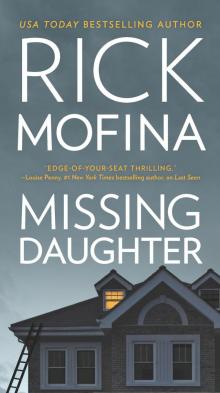 Missing Daughter
Missing Daughter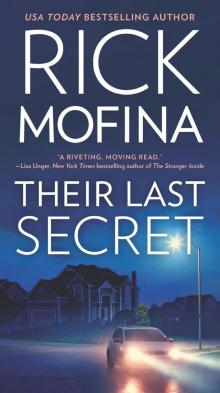 Their Last Secret
Their Last Secret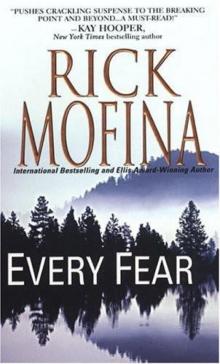 Jason Wade - 02 - Every Fear
Jason Wade - 02 - Every Fear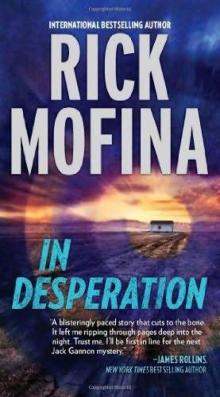 In Desperation
In Desperation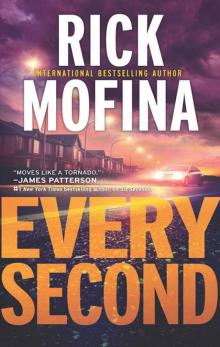 Every Second
Every Second Full Tilt
Full Tilt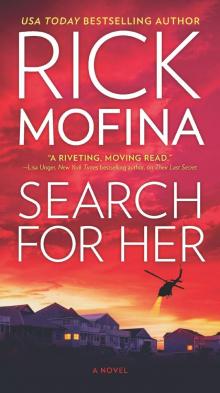 Search for Her
Search for Her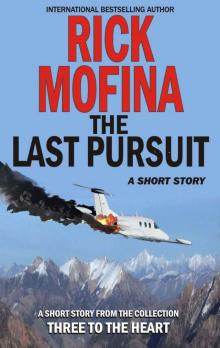 The Last Pursuit
The Last Pursuit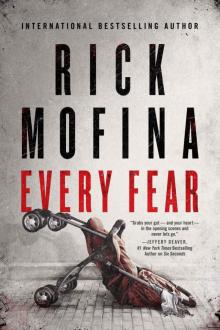 Every Fear
Every Fear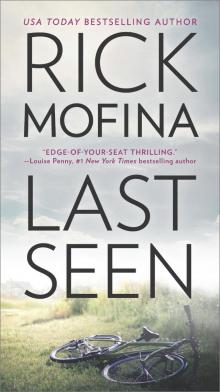 Last Seen
Last Seen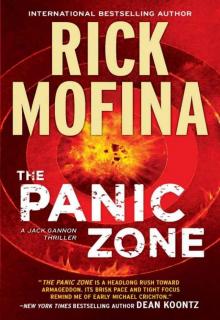 The Panic Zone
The Panic Zone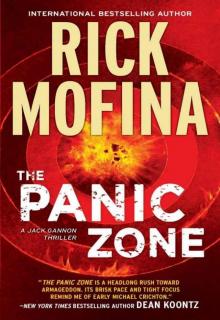 The Panic Zone jg-2
The Panic Zone jg-2 Free Fall
Free Fall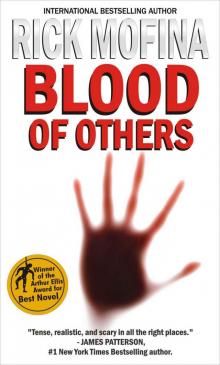 Blood of Others
Blood of Others![[Jason Wade 02.0] Every Fear Read online](http://i1.bookreadfree.com/i1/03/31/jason_wade_02_0_every_fear_preview.jpg) [Jason Wade 02.0] Every Fear
[Jason Wade 02.0] Every Fear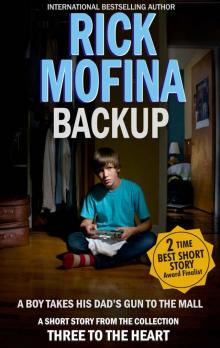 Backup
Backup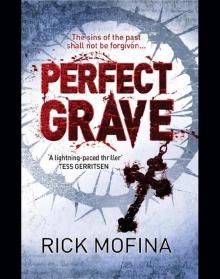 Perfect Grave
Perfect Grave Into the Dark
Into the Dark Whirlwind
Whirlwind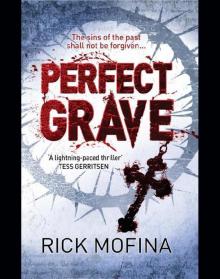 Perfect Grave jw-3
Perfect Grave jw-3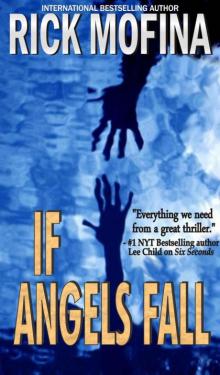 If Angels Fall (tom reed and walt sydowski)
If Angels Fall (tom reed and walt sydowski)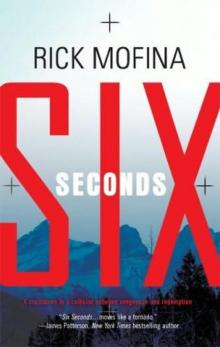 Six Seconds
Six Seconds If Angels Fall
If Angels Fall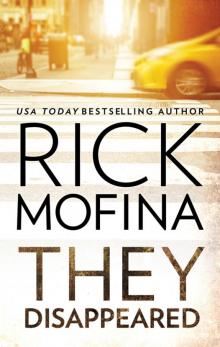 They Disappeared
They Disappeared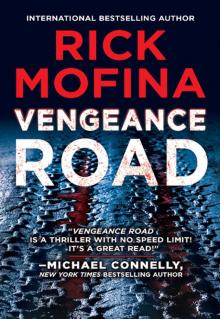 Vengeance Road
Vengeance Road Before Sunrise
Before Sunrise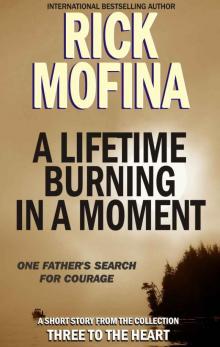 A Lifetime Burning in a Moment
A Lifetime Burning in a Moment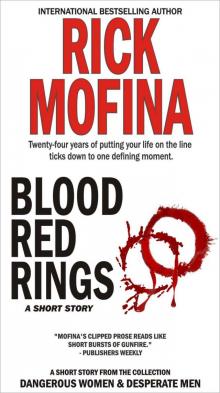 Blood Red Rings (Dangerous Women & Desperate Men)
Blood Red Rings (Dangerous Women & Desperate Men)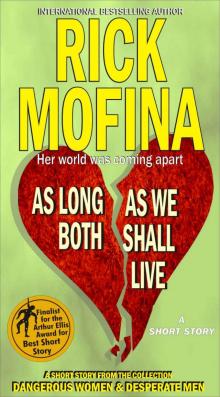 As Long As We Both Shall Live (Dangerous Women & Desperate Men)
As Long As We Both Shall Live (Dangerous Women & Desperate Men)![[Tom Reed and Walt Sydowski 01.0] If Angels Fall Read online](http://i1.bookreadfree.com/i2/04/12/tom_reed_and_walt_sydowski_01_0_if_angels_fall_preview.jpg) [Tom Reed and Walt Sydowski 01.0] If Angels Fall
[Tom Reed and Walt Sydowski 01.0] If Angels Fall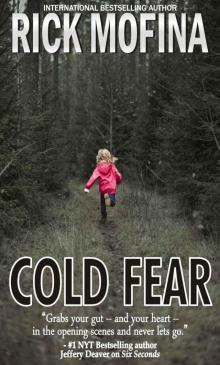 Cold Fear
Cold Fear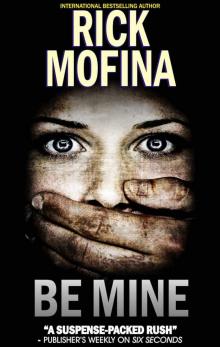 Be Mine
Be Mine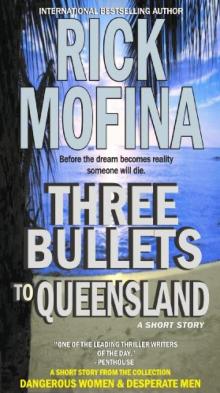 Three Bullets To Queensland
Three Bullets To Queensland